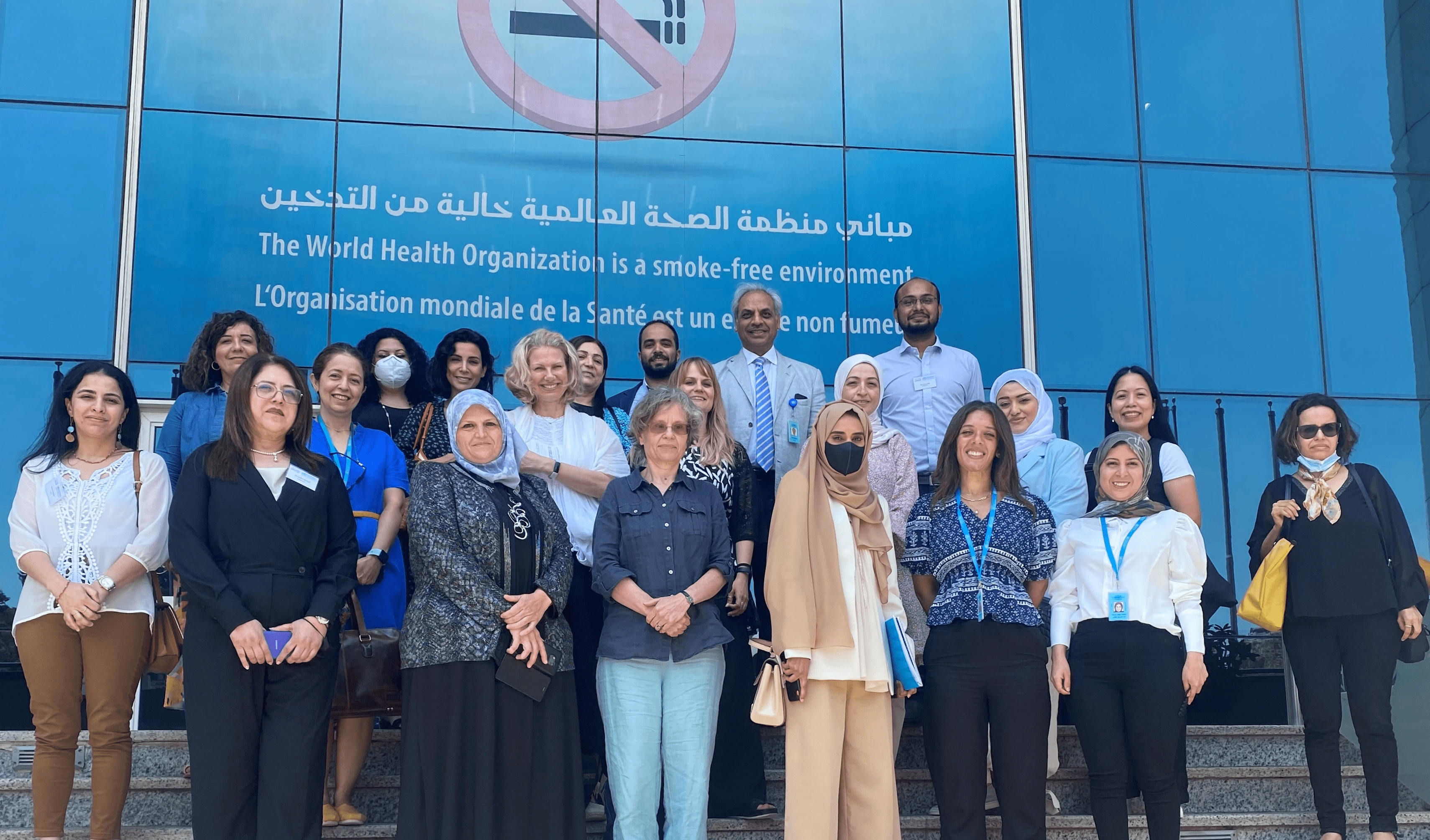
The World Health Organization Regional Office for the Eastern Mediterranean organized a regional consultation aimed at enhancing the capacity of countries to implement anti-stigma programmes in the Eastern Mediterranean Region. Experts from nine countries across the Region attended the consultation, which was held at the WHO Regional Office in Cairo, Egypt from 28 to 30 June 2022. The countries included: Egypt, Islamic Republic of Iran, Jordan, Lebanon, Morocco, Pakistan, Qatar, Tunisia and United Arab Emirates.
Mental health is an integral part of our general health and well-being and a basic human right. Having good mental health means we are better able to connect, function, cope and thrive. Mental health risks and protective factors can be found in society in varying levels. Key threats today include: economic downturns and social polarization; public health emergencies; widespread humanitarian emergencies and forced displacement; and the growing climate crisis. Also, the COVID-19 pandemic has created a global crisis for mental health, fuelling short- and long-term stresses and undermining the mental health of millions. For example, estimates put the rise in both anxiety and depressive disorders at more than 25% during the first year of the pandemic. At the same time, mental health services have been severely disrupted and the treatment gap for mental health conditions has widened.
About one in eight people in the world live with a mental disorder. Mental disorders are the leading cause of years lived with disability, accounting for one in every six years lived with disability globally. Mental health systems all over the world are marked by major gaps and imbalances in information and research, governance, resources and services. Pervasive stigma attitudes and discrimination are among the major contributors to these imbalances and the least addressed.
During the consultation, Dr Khaled Saeed, Regional Adviser for Mental Health and Substance Use, WHO Regional Office for the Eastern Mediterranean highlighted that “the stigma attached to mental health conditions is universal, pervading across cultures and contexts in countries everywhere, contributing to the governance, service, human resource, information and research gaps which translates into the significant treatment gap.”
In his opening address, Dr Ahmed Al-Mandhari, WHO Regional Director for the Eastern Mediterranean stated that “the consultation offers a valuable opportunity to share good practices, experiences and lessons learnt in diverse settings.” He reiterated that “the COVID-19 pandemic has brought increased visibility and commitment towards mental health and it is now our duty to leverage it to scale up integrated, community-based mental health care.”
Over the three days of the consultation, representatives from ministries of health, civil society organizations and international experts participated in discussions and exchanges to learn from national and international experiences in tackling stigma related to mental health and set up evidence-based interventions using the evidence-based resources and tools. The participants also identified the various challenges and opportunities for developing such anti-stigma programmes and interventions.
Dr Suhaila Ghuloum, Consultant Psychiatrist, Hamad Medical Corporation, Qatar expressed that “while the Eastern Mediterranean is a diverse Region, the challenges related to mental health are strikingly similar across the Region.” The participants emphasized the need to foster intersectoral and inter-country collaboration to improve mental health literacy and reduce stigma across the Region. Dr Taha Sabry, Co-Founder and Chief Operating Officer, Taskeen Health Initiative, Pakistan, elaborated that “similar challenges often require similar solutions. We need to form an Eastern Mediterranean Mental Health Coalition to continue to share ideas and interventions to help countries move forward on the mental health agenda.”
At the end of the consultation, Dr Lubna Alshaali, Director of Health Policy and Legislation Department, Ministry of Health, United Arab Emirates observed that “efforts should continue beyond this consultation and that WHO should continue to support country implementation efforts as well as evaluation efforts in order to improve the quality of life of many people living with mental health conditions in the Region.” Dr Alshaali’s observation was supported by all participants in the consultation.
Related links
Convention on the rights of persons with disabilities
Comprehensive mental health action plan 2013–2020
Regional framework to scale up action on mental health in the Eastern Mediterranean Region








